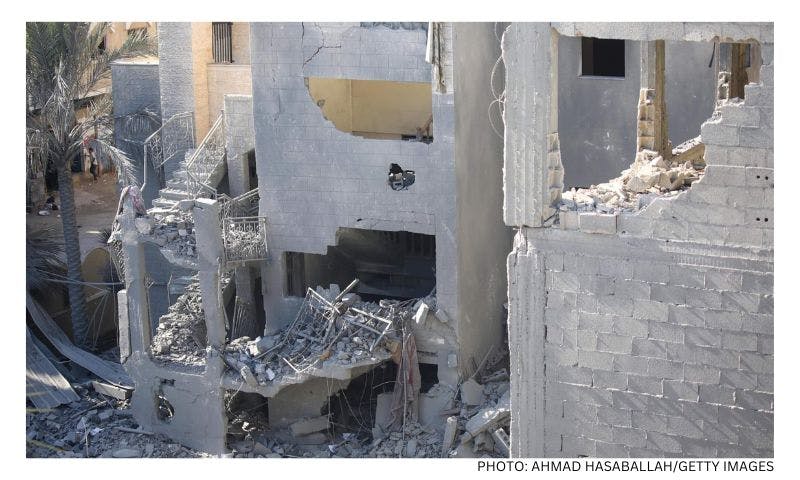Published: 21 March 2019
Last updated: 4 March 2024
The third issue is whether the rabbinate or the individual should have the primary say about the religious expression of each individual. The fourth, and most talked about issue, is whether Netanyahu is fit to continue leading the country following multiple corruption and bribery charges he is facing, pending a hearing.
The Jewish Independent spoke with five Australians from a range of different social and political viewpoints about who they are voting for and why. Some common themes that emerged included nostalgia for Australia’s compulsory voting system and having a local member to directly represent their local interests on the national stage.
CYGAL PELLACH, 35

A graduate of the Hineni youth movement from Sydney, Cygal Pellach lives in Tel Aviv. In contrast to the Australian political system, she misses having a local MP, and also wishes that Israel had compulsory voting so that parties would be less inclined to run populist policies that motivate their base to get out and vote. Her main issues of concern are the growing levels of socio-economic inequality, the need to counter and educate against racism and the need to end Israel’s occupation of the West Bank.
Reflecting on this last issue, Pellach says “growing up in Australia, we were taught that using the word occupation in reference to the Israeli-Palestinian conflict was ‘anti- Israel’.” I disagree. What else should we call the situation where Palestinians have to pass through military checkpoints just to get to work, or worse, the hospital? If we annex or disengage, or best case, agree to a two-state plan, we can stop using the word occupation."
Pellach supports the left-wing Meretz Party because it is line with her values and she has seen many of its MKs standing at the forefront of struggles against social inequality, racism and bigotry.
RACHAEL RISBY-RAZ, 44

A Jerusalem-based international and Jewish affairs consultant, Rachael Risby-Raz is currently chief of staff to former Prime Minister Ehud Olmert. She also believes that the absence of compulsory voting is a drawback, and he would also prefer having electorates in Israel, but is doubtful whether it would work due to the small size of the country.
Her policy priorities for this election are a clean leadership free of corruption, a vision for the future and a “solution to the Palestinian situation”. She plans to vote for the new party led by Benny Gantz and Yair Lapid, called Blue and White. Raz believes they best represent her values in terms of security and economic issues.
PETA JONES-PELLACH, 65

A fifth generation Australian, Peta made Aliyah in 2010 and is now the Director of Educational Activities for the Elijah Interfaith Institute. She views the Israeli electoral system as being “extremely flawed” and believes that “having a local representative is very important and would make a huge difference here”.
Her vote will be shaped by concerns over social justice and equal opportunities. She plans to vote Avoda, the Labor party of Israel because unlike Blue and White, it is not led by a general and there are a number of women high up on the list.
ARI SILBERMANN, 35
Ari is an Orthodox rabbi who lives in the West Bank. Since immigrating from Melbourne, he has worked in several educational roles, and is now married with four children. Silberman says that in contrast to the Australian political system which has two major parties, he appreciates the diversity of political expression on offer in Israel that better caters for minority interests.
The key issues that will determine his vote are which party can best handle Israel’s security challenges, the economy, a reduction in the cost of living, improvement to social welfare in the periphery, improved religious services and strengthening the religious education system.
In the past Silberman has voted for the National Religious Party, but he was put off by its union with the extremist Otzma Yehudit (Jewish Power) party. This election, he will be voting for the New Right led by Naftali Bennett and Ayelet Shaked, rejecting both the Likud and the Union of Right-Wing Parties.
He told The Jewish Independent, “I don’t like the thought of Bibi running with an indictment hanging over him. Although Hayamin Hadash is not ideal and I think their social economic platform is different from mine, they are the only party I can count on to maintain services to my community, strengthen Israel’s security and work towards improving the economy.”
DANIEL (MUSH) MEYER

An alumni of Bnei Akiva in Sydney, Meyer has always been connected to the Mafdal (National Religious Party) which has sat in several right and left wing coalitions since the creation of the state. His key issues are education, protecting the land of Israel, social welfare, minority rights and breaking the monopoly of the Chief Rabbinate. He plans to vote for the United Right-Wing Party, which includes Jewish Home, National Union and Jewish Power (Oztma Yehudit).
Regarding the controversy that media commentators have raised about Jewish Power leaders Michael Ben-Ari and Itamar Ben Gvir entering the Knesset through the creation of the United Right Party, Meyer says the union is nothing more than a technical bloc. He points out that there were no Jewish Power representatives at the launch of the United Right campaign launch. Meyer currently serves as the acting head of the Bayit Yehudi Anglo branch.
RECOMMENDED WEBSITES
Party policies
https://the-jewish-independent.vercel.app/israeli-political-party-policies/
https://jstreet.org/israels-2019-election/factions/#.XI6URygzZPY
Coalition preference of each party
https://www.jpost.com/Israel-Elections/Jerusalem-Posts-guide-to-the-April-9-elections-582800
Latest polls
https://en.wikipedia.org/wiki/2019_Israeli_legislative_election
Illustration: John Kron




